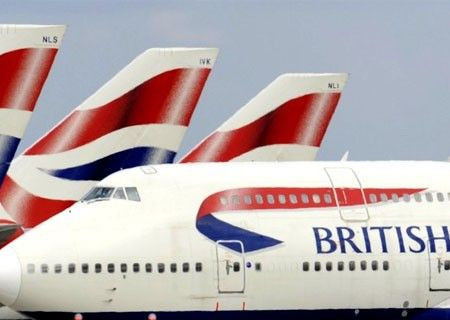British Airways To Retire Entire Fleet Of Boeing 747s Due To Pandemic-Related Downturn

KEY POINTS
- British Airways was the world's biggest operator of the iconic jumbo jets
- The carrier said it will now focus on its Airbus A350s and Boeing 787 Dreamliners
- Air France, KLM, Qantas, Delta Air Lines and United Airlines have already retired their fleets of 747s.
British Airways has decided to retire its entire fleet of 31 Boeing 747 aircraft four years ahead of schedule due to the downturn in air travel.
The U.K.-based airline, which has cut thousands of jobs due to the COVID-19 crisis, was the world's biggest operator of the iconic jumbo jets.
The 747 jets represented about 10% of British Airways' total fleet. The carrier originally planned to retire the vehicles in 2024.
The carrier said it will now focus on more fuel-efficient aircraft such as its Airbus A350s and Boeing 787 Dreamliners.
"It is with great sadness that we can confirm we are proposing to retire our entire 747 fleet with immediate effect," a British Airways spokesman said. "It is unlikely our magnificent 'queen of the skies' will ever operate commercial services for British Airways again due to the downturn in travel caused by the Covid-19 global pandemic.”
BOAC, British Airways' predecessor airline, operated its first 747 flight in 1971 -- flying from London to New York. Over the past 50 years, some 3.5 billion passengers have flown on the 747.
Air France, KLM, Qantas, Delta Air Lines (DAL) and United Airlines (UAL) have already retired their fleets of 747s.
Travel data firm Cirium indicated there are only about 500 747s still active, of which just 30 are actively flying passengers. More than 300 of these planes fly cargo and the remainder are kept in storage.
“The Boeing 747 is beautiful, distinctive and has half a century of proud service behind it. But -- as a passenger plane at least - it is also quite simply outdated,” wrote BBC. “A four-engine aircraft, it is far less efficient than modern twin-engine models, such as the Airbus A350, the 787 Dreamliner, or even the older Boeing 777 - all of which are cheaper to run.”
© Copyright IBTimes 2025. All rights reserved.





















